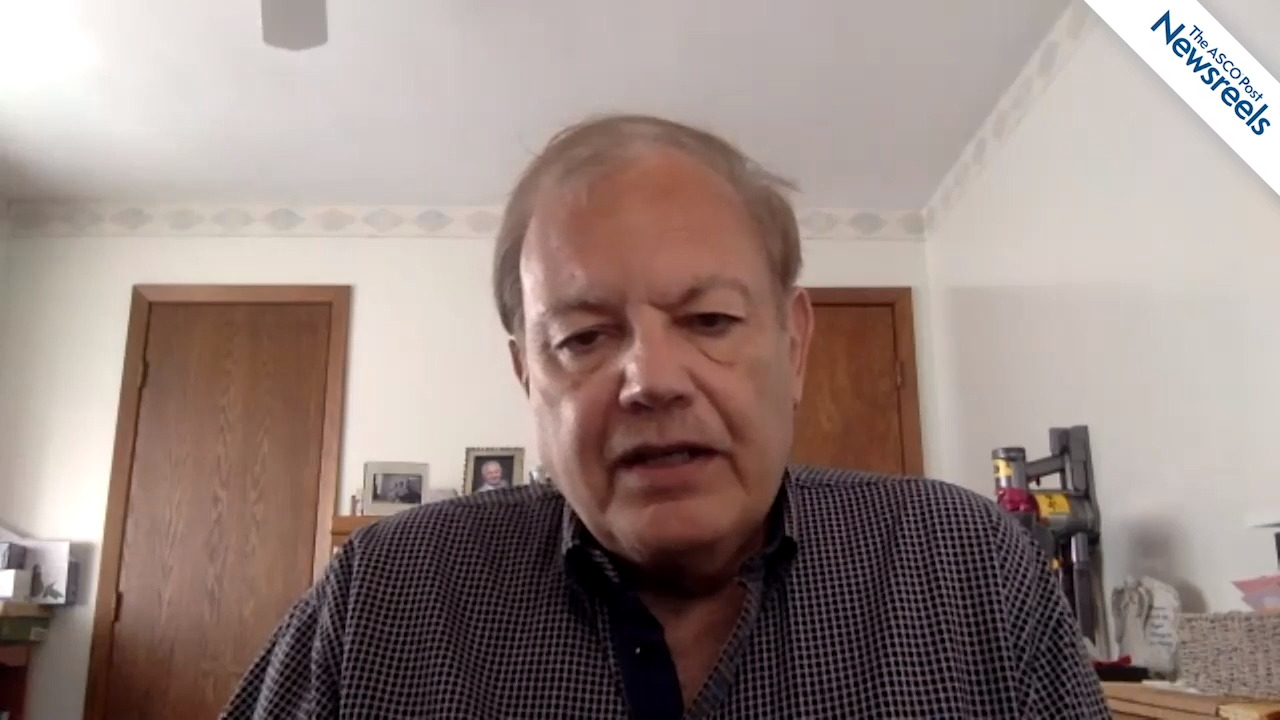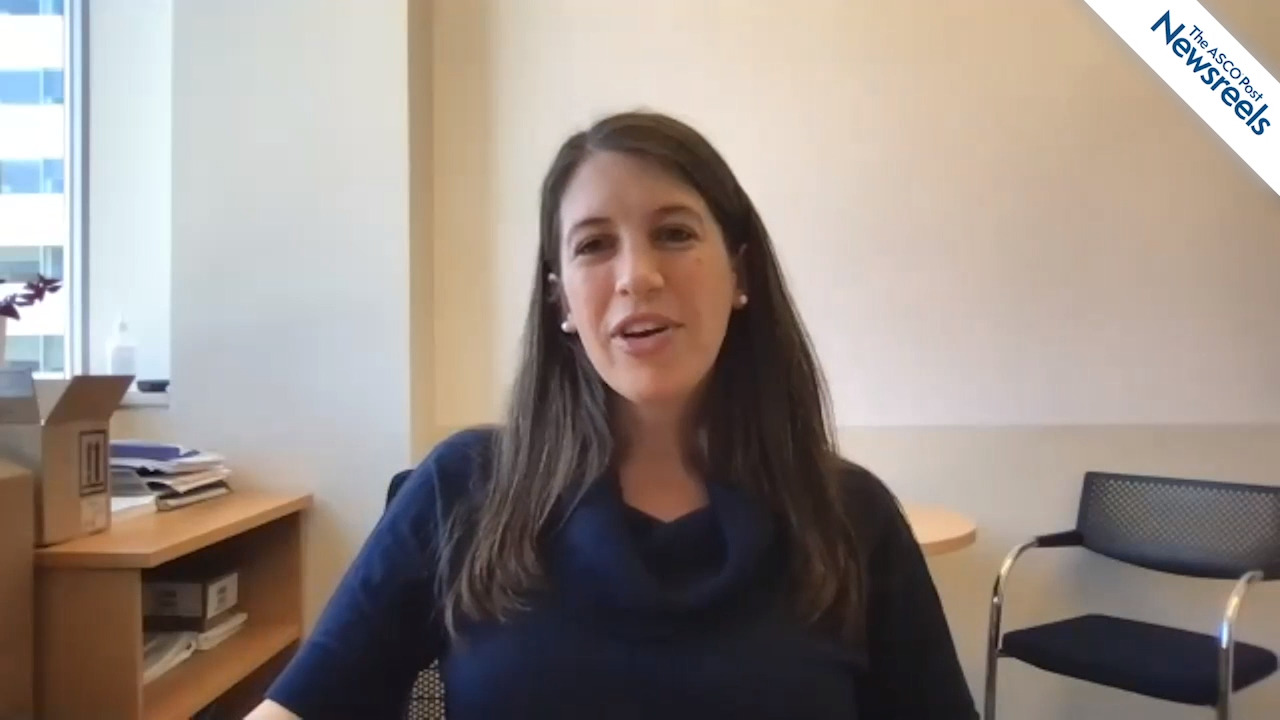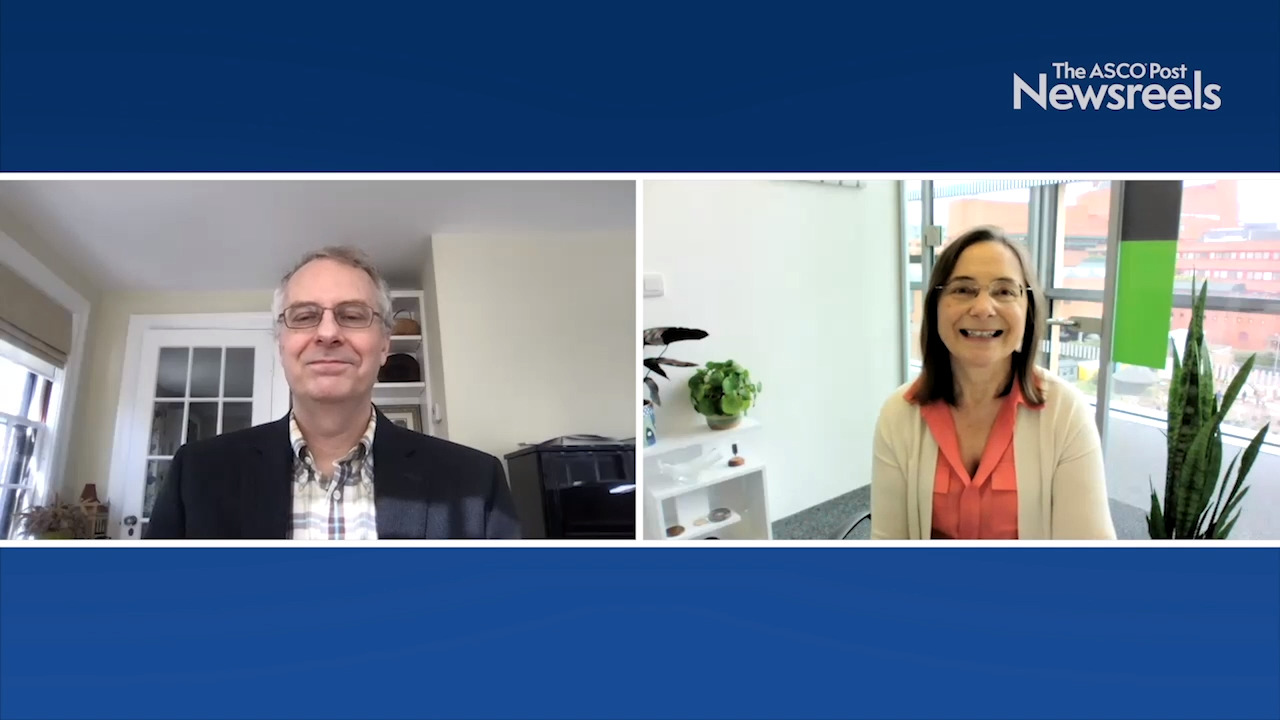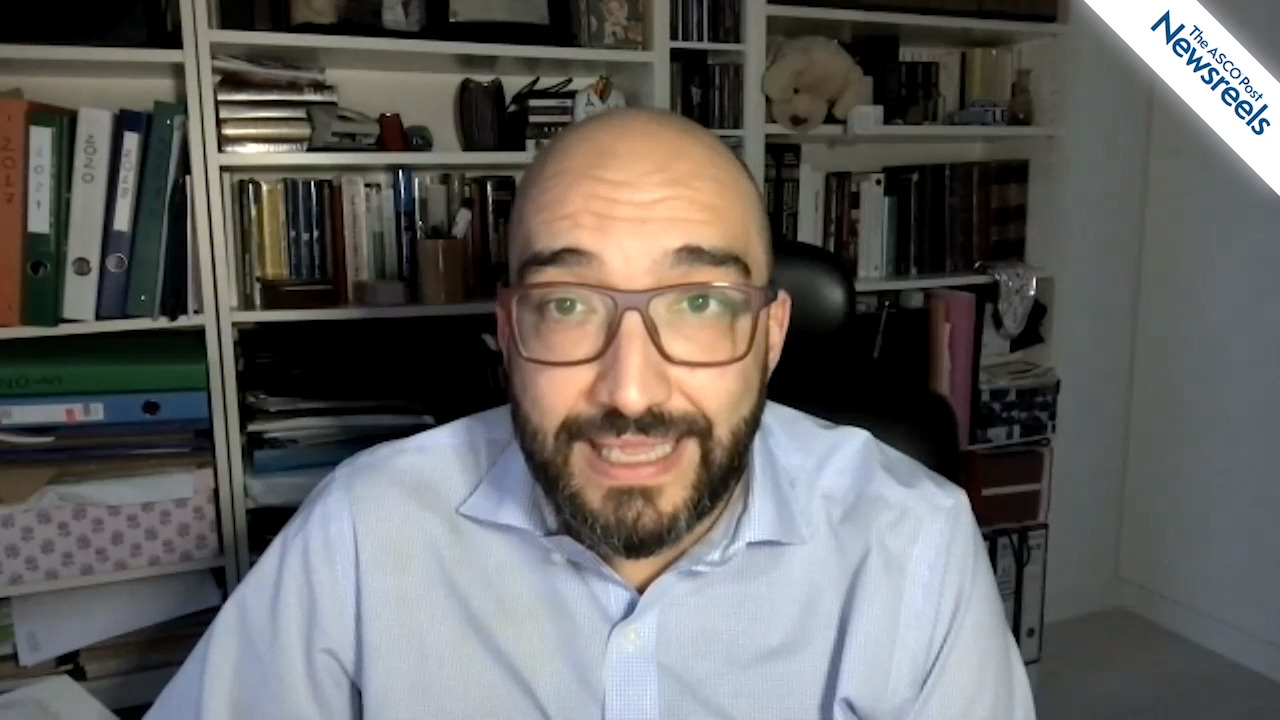Georgina V. Long, MD, PhD, on Melanoma: Nivolumab Plus Ipilimumab vs Nivolumab Alone
AACR Annual Meeting 2021
Georgina V. Long, MD, PhD, of the Melanoma Institute Australia, University of Sydney, discusses results of the CheckMate 915 trial, which may reinforce nivolumab as an adjuvant standard of care in patients with stage IIIB–D/IV melanoma, with or without complete lymphadenectomy (Abstract CT004).
The ASCO Post Staff
Dennis J. Slamon, MD, PhD, of the UCLA David Geffen School of Medicine, reflects on the ways in which breast cancer research pioneered the targeted treatment approach, as understanding of the basic biology of tumors deepened and new pathways were uncovered. He sees a future ripe with possibilities for new molecular targets to further improve outcomes for patients with breast cancer and other types of tumors.
The ASCO Post Staff
Katelyn T. Byrne, PhD, of the Perelman School of Medicine at the University of Pennsylvania, discusses the first in-depth analysis of the impact of selicrelumab, an anti-CD40 antibody, which was found to enrich T cells in pancreatic tumors, activate the immune system, and alter the tumor stroma (Abstract CT005).
The ASCO Post Staff
Carey K. Anders, MD, of the Duke Cancer Center, discusses the ways in which treatment of brain metastases arising from solid tumors has moved into a new era of patient care and how the field may advance.
The ASCO Post Staff
Karen H. Vousden, PhD, of The Francis Crick Institute, and Matthew G. Vander Heiden, MD, PhD, of the Koch Institute for Integrative Cancer Research at MIT, discuss emerging evidence that diet may affect which nutrients are available to tumor cells, which can influence both tumor growth and response to therapy. Clinicians may be able to personalize dietary interventions to optimize patient care.
The ASCO Post Staff
Enrique Grande, MD, PhD, of The University of Texas MD Anderson Cancer Center, Madrid, discusses phase III overall survival results from the IMvigor130 study of atezolizumab plus platinum and gemcitabine vs placebo plus platinum and gemcitabine in patients with previously untreated metastatic urothelial carcinoma (Abstract CT187).





